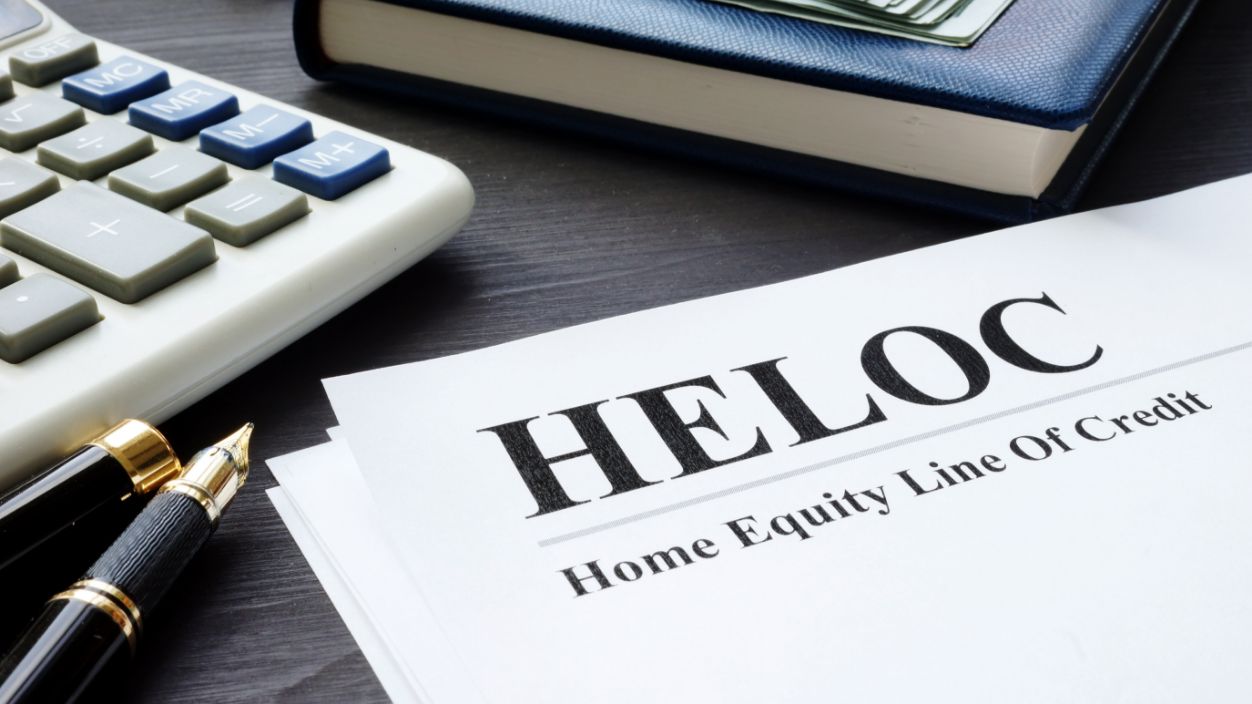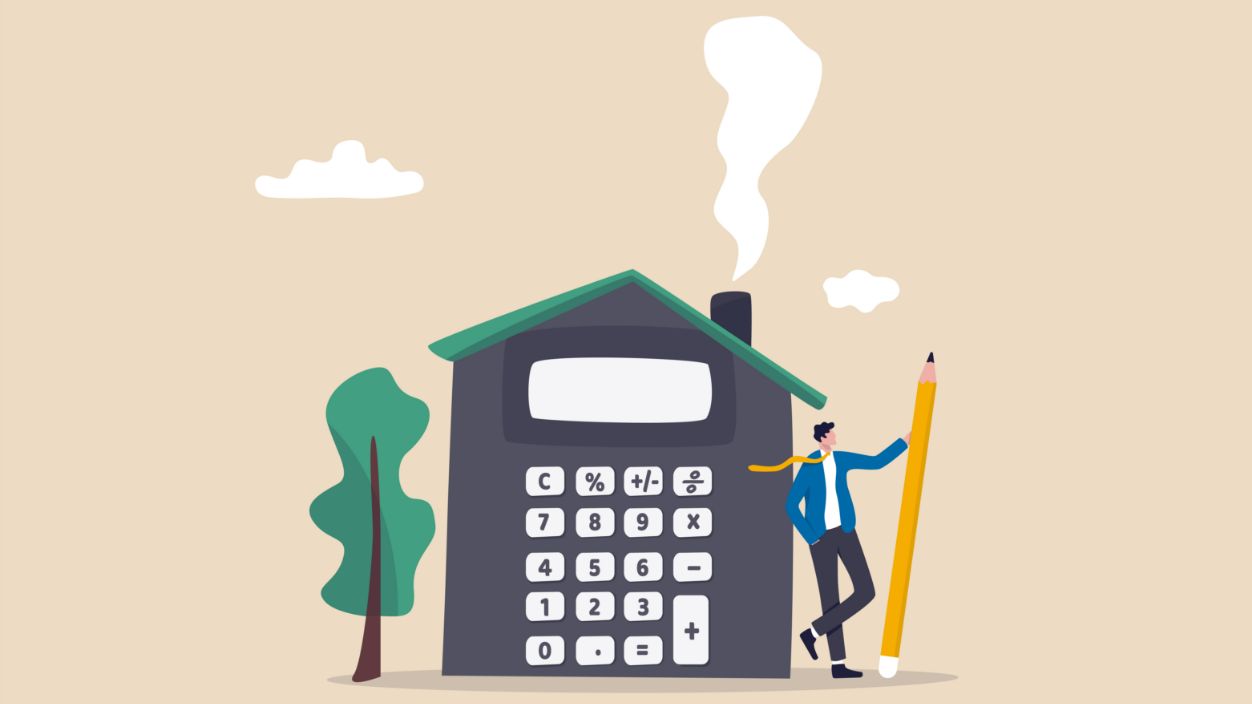Important: PropStream doesn’t offer financial advice. This article is for informational purposes only. Since your home may be used as collateral with some of these loan options, we recommend speaking with a financial advisor and/or legal professional to ensure you make the most educated decision before moving forward with any of these financing options.
As a real estate investor, you may be looking for creative ways to finance your next investment property or remodel an existing one without saving up a large down payment.
Did you know that if you already own a home, you may be able to use its equity for these purposes?
In general, there are three common types of loans that turn your home equity into cash for an investment property: a home equity loan, a HELOC, and a reverse mortgage.
Let’s look at each one more closely and uncover how you can use them to invest in real estate.
What Is a Home Equity Loan?
As the name implies, a home equity loan lets you tap into your equity to fund purchases. (Equity is how much your home is worth minus the debt you owe on it).
Home equity loans are often called “second mortgages” because they function similarly to a mortgage loan. Typically, you receive the money as a lump sum and repay it with interest every month for a set term—typically from five to 20 years or longer.
Like many mortgages, home equity loans often include interest, points, fees, and other charges. Their interest rates are usually fixed, which means they stay the same for the entire life of the loan. Some investors prefer this type of loan because of the predictable monthly payments.
The amount you can borrow depends on your lender and your financial situation. But in general, your loan amount is typically limited to 85% of the equity you have in your home. You can then use this money to pay for personal expenses, home renovations, or even the purchase of your next investment property.
Keep in mind that your home acts as collateral with this type of loan. So, if you can’t repay your loan, your lender may be able to foreclose on your property.
Home Equity Loan Requirements
To get a home equity loan, you typically need at least 20% equity in your property and a debt-to-income ratio (your total monthly debt payments divided by your total monthly income) of 43% or less.
Lenders also look at your credit health. You’ll likely need a credit score of at least 680, according to the credit bureau Experian. Other options are available for those with lower credit scores, but these loans generally come with higher interest rates.
HOME EQUITY LOAN OVERVIEW
- You receive the borrowed funds as a lump sum.
- You can generally only borrow up to 85% of your home equity.
- Interest rates and payment amounts are fixed.
- You must meet certain credit and income requirements to qualify.
What Is a HELOC?

Like a home equity loan, a home equity line of credit (HELOC) lets you tap into your equity to access liquid cash.
But unlike a home equity loan, a HELOC works more like a credit card. Instead of receiving the funds as a lump sum, you borrow from the account as you need up to a preapproved total amount. This amount is based on your equity, credit health, and lender. You then repay whatever you borrow with interest.
You can pull money from this account multiple times, but many HELOCs require you to do so within a window of time called a “draw period,” which typically lasts about five to 10 years. After the draw period is over, you may be able to renew the line of credit to continue using it.
HELOCs don’t include points or other financing charges. Instead, they’re based on interest alone, and their rates are generally variable, meaning they fluctuate with the market. As a result, your payments can increase or decrease during the repayment period.
Keep in mind that because your home is collateral for a HELOC, the bank may be able to foreclose on your property if you don’t repay what you borrow, similar to the home equity loan.
HELOC Requirements
Requirements for HELOCS are similar to those of home equity loans.
Many lenders require you to have at least 20% equity in your home. You’ll also likely need to have a DTI (debt-to-income) ratio under 43% and a credit score of at least 680—although you might be able to find options outside these parameters.
HELOC OVERVIEW:
- You can draw from a line of credit up to an approved amount.
- HELOCs don’t come with points or other financing charges.
- Interest rates and payment amounts can fluctuate.
- You must meet certain credit and income requirements to qualify.
What Is a Reverse Mortgage?
Reverse mortgages—sometimes called reverse equity loans—are reserved for homeowners who are 62 or older.
A reverse mortgage lets you borrow against the equity in your home and receive monthly payments from your lender. With each monthly payment you receive, your lender adds interest and fees to your loan balance. This causes your home equity to decrease each month.
Unlike home equity loans and HELOCs, a reverse mortgage doesn’t typically need to be repaid until the borrower has died. At that point, the loan is typically repaid by whoever the borrower leaves the home to after passing. If your heirs prefer to keep the estate, they may be able to refinance the loan instead. However, if you or your heirs default on the loan, your lender can foreclose on the house to receive their payment.
While after death is a common time to repay a reverse mortgage, you may need to pay on the loan earlier if you sell the house, fail to maintain it adequately or pay property taxes, or move out for more than a year.
Another aspect of reverse mortgages to keep in mind is that closing costs for this type of financing tend to be higher than home equity loans and HELOCs, and you may need to pay mortgage insurance premiums (MIP) and other fees.
The most common type of reverse mortgage is called a home equity conversion mortgage (HECM) and has a special loophole called your right of “rescission.” This simply means you can cancel the loan for any reason within three days after closing.
Reverse Mortgage Requirements
You may not need to have good credit to get a reverse mortgage, but you do need to be at least 62 and have a considerable amount of equity in your home. Some lenders may even prefer that you own your home outright.
For HECMs specifically, requirements include having zero federal debt, having enough income to pay for your home’s upkeep and taxes, and receiving counseling to discuss your eligibility and the impact the loan could have on your finances. Your home will also need to be in good condition to be eligible.
REVERSE MORTGAGE OVERVIEW
- Your loan is due upon your death—or if you sell the home or move out for more than a year.
- Once the loan is due, the home goes to your lender, and your lender sells it.
- You must be at least 62 years old to qualify.
- You don’t need to have good credit.
- You need to show you can pay your bills.
- Closing costs tend to be higher.
Home Equity Loan vs. HELOC vs. Reverse Mortgage: Which Is Better for Investors?

With any of these loans, you can typically use the funds you borrow to pay for a rehab project, fund a rental property purchase, or finance a fix-and-flip deal.
However, some investors may view reverse mortgages as riskier than home equity loans and HELOCs because your lender ends up owning your home. Plus, you typically receive the funds as monthly payments instead of as a lump sum you can use to fund a large purchase like an investment home.
Another key point to remember is that most reverse mortgages are only available for your primary residence, not second homes or rental properties. If you’re planning to borrow against an investment property, a home equity loan or HELOC might be an option as long as you have enough equity.
Although home equity loans, HELOCs, and reverse mortgages can be useful tools to fund real estate purchases, each option has pros and cons. Because of that, you may want to research your options and speak with a professional before deciding on a loan type.
